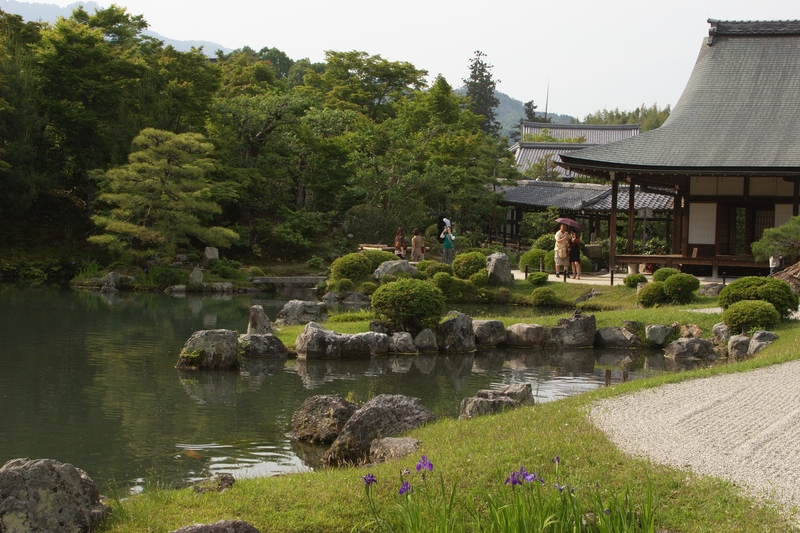Japanese gardens have a certain timeless beauty about them, but I have not read anything that described the features that contribute to this beauty. Part of this is that Japanese gardens appear to have been strongly influenced by Zen Buddhism, and since Zen enlightenment cannot be communicated with propositional truth, but only by spontaneous comprehension, Zen gardens are rarely described in an engineering fashion. As an engineer, this presents itself as an excellent opportunity to reverse-engineer the Zen garden.
We can see a number of Zen features in this picture of Tenryuji’s excellent Zen garden. The most noticeable feature is the pond. Unlike Western gardens, where the pond would be either oval shaped, or if the garden is particularly orderly, a rectangle. Here we see that the pond is roughly shaped like a natural body of water. The shoreline is irregular, rocky, and even has a peninsula. Not all ponds mimic nature (Ryouanji’s pond is oval shaped), but the gardens that seemed qualitatively best had an irregularity to them.
 Zen garden at Tenryuji1 / 22 |